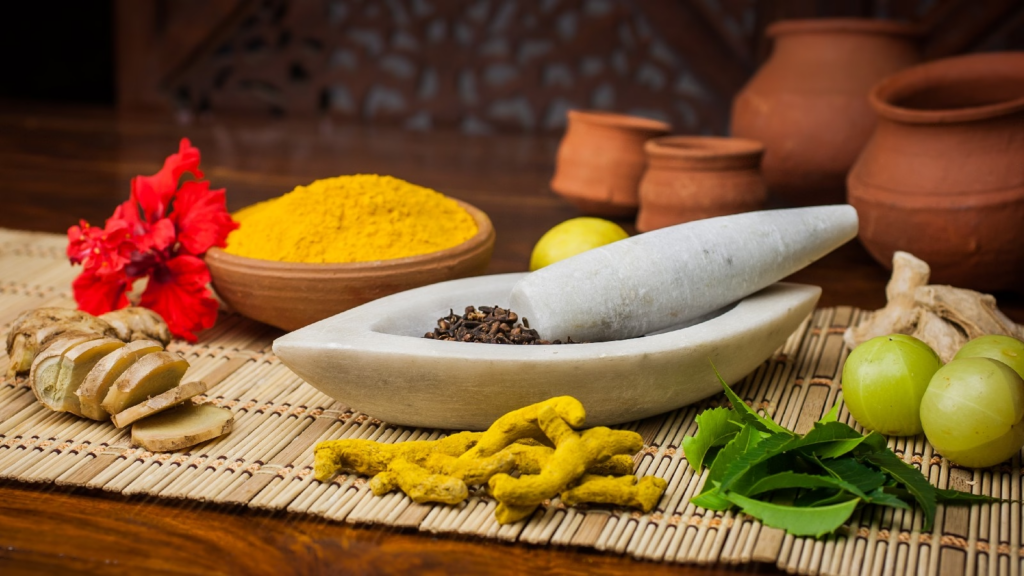
Ayurveda is a treatment concept of holistic medicine, originating from the ancient Indian tradition; while manifold benefits are offered, it has also side effects and precautions. While Ayurveda is generally harmless, treatments can be hazardous, particularly when unqualified practitioners give treatments to patients.
In this article, we review a few of the possible side effects of some necessary precautions for your safe and effective Ayurvedic journey by equipping the necessary knowledge in making valid informed consent decisions regarding one’s health.
What is the common side effect of Ayurveda?
Commonly, the side effects of Ayurveda are digestive problems, allergic reactions, or interactions with conventional medications. It is necessary to find a qualified practitioner to minimize risks.
While Ayurveda is generally harmless, some treatments have the potential to cause digestive disturbances such as nausea or diarrhea, which may especially occur when herbal preparations are not well matched to the constitution of the individual.
The side effects in reaction to certain herbs are also quite possible, especially if the ingredients are not well cleaned for quality. Other possible risks include interactions with conventional medications that may lead to adverse effects.
Are there any specific precautions to take with Ayurveda?
The precautions of Ayurveda are consultation with a qualified practitioner, revealing all types of medications and allergies one has, assurance of purity about the herbal products, treatments to be personalized, etc.
Precaution is to be taken concerning the Ayurvedic treatments for safety and effectiveness. First, one needs to consult an Ayurvedic practitioner qualified in his or her specialty regarding one’s health background, including the consumption of certain medicines.
This would also prevent possible interaction between Ayurvedic herbs and drugs apart from telling any known allergies that might result in adverse reactions. The herbal products should be obtained from reputable suppliers, which ensures purity and evades contamination.
This is why, in Ayurveda, personalized treatments are of prime importance, as they not only consider your individual constitutional makeup, called Prakriti but also your imbalances, known as Vikriti. This can minimize the chances of side effects from using herbs that may not be suitable for your body type.

Do Ayurvedic herbs interact with conventional medications?
Yes, some Ayurvedic herbs may interact with your conventional medications, enhancing their action or causing some side effects. Therefore, consultation with a healthcare professional is always helpful.
Interactions between Ayurvedic herbs and conventional drugs can take place; these affect the potency of either the herbal medicine or the allopathic drug.
For example, some herbs interact by affecting the potency of blood thinners, blood pressure medications, and diabetes medications. Such interaction could either have less therapeutic effect or more side effects.
Therefore, any Ayurvedic treatment you are considering using or are currently using should be brought to the attention of your healthcare provider for them to monitor your health and adjust your medication regime as necessary, enabling you to have a safe effective therapeutic outcome.
Is Ayurveda safe during pregnancy?
Ayurveda, in the hands of a professional, is considered safe during pregnancy. Some herbs and treatments need to be avoided. Consult your practitioner.
In Ayurvedic tradition, there are many therapies that can give the woman support during such a delicate time, yet great caution is called for. Some Ayurvedic herbs and treatments, on the other hand, are not indicated during pregnancy and can cause complications.
These would include herbs, for example, that are too potent, such as Ashwagandha, and certain cleansing treatments. The practitioner will be in a better position to provide alternatives that are nontoxic and support pregnancy; examples include dietary adjustments, mild herbal teas, and massage therapies aimed at comfort and well-being.
What precautions must be taken to undergo Ayurvedic detox therapies?
Ayurvedic detox therapies require professional supervision, especially when the person suffers from certain chronic health disorders. The detox methods followed gradually are much safer than the aggressive ones. Consultation is a must.
All these detox therapies, according to Ayurveda, are collectively referred to as Panchakarma and are targeted at cleansing the body of toxins with the aim of restoring balance.
However, they can be pretty extreme and should not be performed without the guidance of a professional, especially by people who have chronic diseases such as heart conditions, diabetes, and autoimmune diseases.
Aggressive detoxification methods flare up these conditions and cause negative side effects. This may involve recommendations by a qualified Ayurvedic practitioner for more gradual and safer detox methods that apply to the individual’s health status.
Does Ayurveda Recommend any Dietary Taboos?
Dietary taboos abound in Ayurveda although this is usually recommended based on individual constitution and imbalances. Some general practices are the rules of incompatible food combination and seasonal guidelines.
Ayurveda views diet as a prime aspect of maintaining good health and preventing diseases. Dietary suggestions are usually individualistic, based on your Dosha or constitution and its imbalance.
For example, Pitta constitution people should avoid spicy and acidic foods, whereas Kapha constitution people should minimize the use of dairy and sweets. Another thing that Ayurveda gives a lot of prominence to is avoiding incompatible food combinations-for instance, mixing dairy with fish can lead to indigestion.

How does one ensure the quality of Ayurvedic products?
Ensure Ayurvedic products from reputed suppliers; check for certifications, ingredient lists. Consult a professional.
The quality of Ayurvedic products becomes an important issue in relation to safety and effectiveness. Ensure that you responsibly select products by considering suppliers with a decent reputation concerning purity and authenticity.
For this, they might also have certifications like GMP or organic, which manifest the good quality of the production standards. Secondly, always check the ingredient list for additives, fillers, or other contaminants that compromise the integrity of the product.
You will also be in a position to choose for yourself the best products that will suit your needs with the consultation of a qualified Ayurvedic practitioner, so that those products will be targeted at some health problems and/or undergone treatments in correspondence with Ayurveda.
Conclusion:
Ayurveda is a wholistic health profession, but there are some adverse effects and measures necessary in order to practice the therapy safely and effectively. In this connection, one can consult qualified practitioners, be aware of the possible interactions with the conventional medicine, and quality in Ayurvedic products to minimize the risks and maximize the benefits associated. Whether you’re new to Ayurveda or seeking to deepen your practice, informed choices are key to a healthy and balanced life.
